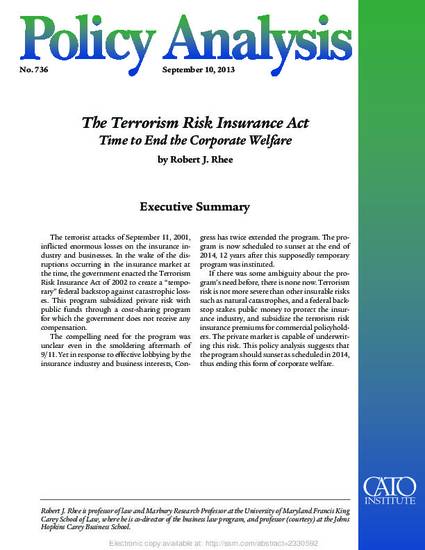
- Terrorism Risk Insurance Act,
- TRIA,
- terrorism risk coverage,
- terrorism insurance
The terrorist attacks of September 11, 2001, inflicted enormous losses on the insurance industry and businesses. In the wake of the disruptions occurring in the insurance market at the time, the government enacted the Terrorism Risk Insurance Act of 2002 to create a “temporary” federal backstop against catastrophic losses. This program subsidized private risk with public funds through a cost-sharing program for which the government does not receive any compensation. The compelling need for the program was unclear even in the smoldering aftermath of 9/11. Yet in response to effective lobbying by the insurance industry and business interests, Congress has twice extended the program. The program is now scheduled to sunset at the end of 2014, 12 years after this supposedly temporary program was instituted. If there was some ambiguity about the program’s need before, there is none now. Terrorism risk is not more severe than other insurable risks such as natural catastrophes, and a federal backstop stakes public money to protect the insurance industry, and subsidize the terrorism risk insurance premiums for commercial policyholders. The private market is capable of underwriting this risk. This policy analysis suggests that the program should sunset as scheduled in 2014, thus ending this form of corporate welfare.
